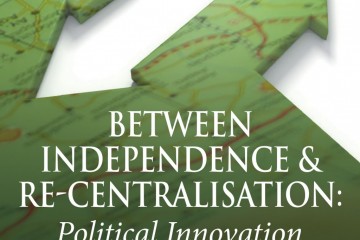
Iceland’s unfinished revolution? An interview with Hordur Torfason
In this Q&A, I discuss the prospects for ‘unfreezing’ the draft new constitution with Hordur Torfason, the award-winning human rights activist credited with starting Iceland’s ‘pots and pans revolution’. You’re credited as the person who started the “pots and pans revolution” in Iceland. How did the protests start? I’m 70 years old this year. I started becoming an activist around 20 years old. Not that I wanted to become an activist, not at all. But I’m gay and it tells you a story that I’m the first gay man in the history of Iceland who steps forward. When I was 30 years old I was very famous. Everybody knew my song. I was on television, radio, doing concerts, LPs. I was …

The saddest Greek tragedy of all
Ending what has been a tumultuous six-month long negotiation process, last week the Greek Parliament approved the first package of austerity measures required by Greece’s creditors as part of the “Greekment” reached in the early morning hours of 13 July 2015 in order to initiate talks on a Third Fiscal Adjustment Programme (or “Memorandum”) and avoid Greece’s expulsion from the Eurozone. According to early reports, this Memorandum cover the Greece’s financing needs for the next three years, but will require the harshest set of austerity measures of the three fiscal adjustment programmes to date. In this first package alone, the Greek government is obliged to implement tax increases and pension cuts totalling approximately 2% of GDP, while future austerity measures …

Why Scotland should adopt the Land Value Tax
The Commission on Local Tax Reform was set up by the Scottish government in February 2015 to consider reform of local government taxation. In this article, submitted as written evidence to the Commission, I make the case for a land value tax (LVT).
1. Local tax should be based on…
The value of the land you own. This is for reasons first set out by Adam Smith in Wealth of Nations (WN) Book V. I am pleased that the Cabinet Secretary for Finance referred to this in his speech introducing Land and Buildings Transactions Tax (LBTT).
A land value tax is the best of all taxes for three reasons.
Land doesn’t move and can’t be hidden.
Land tax best satisfies Smith’s canons of taxation (proportionate to benefits received; certain; convenient; non-distorting – see Wealth of Nations, Book V.ii.b)
It taxes ground-rents, which Smith calls ‘a still more proper subject of taxation than the rent of houses’, because ‘no discouragement will thereby be given to any sort of industry’.

‘Devo Manc’: ‘Northern Powerhouse’ or ‘Northern Poorhouse’?
Centralisation has certainly failed, but the promise of devolution to Greater Manchester is being massively hyped. Manchester is a great world city which has long divided observers. In the mid-nineteenth century, what was for de Tocqueville a ‘foul drain’ and for Taine ‘Babel built of brick’ was for the Edinburgh Review, by contrast, ‘foremost in the march of improvement, a great incarnation of progress’. Most recently, with ‘devo Manc’, the city of 1980s de-industrialisation and indie music has been transmuted into a symbol of post-industrial regeneration and devolved government. All this is being talked up as a matter of electioneering by the Treasury and Westminster politicians. After all, the coalition government must be seen to have a policy on ‘rebalancing …

The making of the Greater Manchester mayor – what next?
Much has been made of backroom deals between the Chancellor George Osborne and Manchester City Council’s chief executive Sir Howard Bernstein to deliver the most significant devolutionary settlement of Whitehall budgets in England. The price of the deal is an elected mayor, who from 2017, will oversee significant sums of devolved spending, answerable to a cabinet made up of the ten council leaders of the Greater Manchester authorities. For some attending a cities@manchester debate earlier this week, the imposition of an elected mayor is seen as an unwelcome and undemocratic step. But this view underplays the way in which this deal represents the culmination of over ten years of hard work and commitment by all the region’s elected leaders (and their officers) to collaborate …

Government in Greater Manchester: A mayor for all seasons?
From June, Greater Manchester will get an interim mayor as part of a deal with the Government on regional devolution. But its imposition without a referendum is a fundamental error by the political elite that may well backfire, argues Professor Colin Talbot. ‘Mayors’ seem to have become the default answer of many in the political elite to the problems of local government and governance in the UK, or more specifically England. Linked to the idea of English devolution as an answer to Scottish ‘home rule’ this has become a heady brew. But maybe it’s time to ask some sober questions about this project of ‘Devo Manc’, at least in terms of the proposed system of government for Manchester. My argument is, …

Time is running out for the Transatlantic Trade and Investment Partnership
In 2013, the European Union and the United States launched negotiations for a comprehensive trade agreement (the Transatlantic Trade and Investment Partnership, TTIP). TTIP’s objective is to facilitate market access for goods and services across the Atlantic by cutting tariffs and trade restrictions (like the Buy American Act), harmonizing regulatory standards, and setting common trade rules, including on custom policies and protected geographical indications.
The agreement is negotiated in a difficult situation. Europe’s weight in the global economy is declining, whereas the US has recovered from the crisis and is striking a parallel deal with the ASEAN countries in the Far East.
Europe’s economic prosperity depends on trade more than that any other region’s in the world. International trade (import and export) accounts for 87% of EU GDP (against 30% in the US, and 50% in China). But what TTIP is about is the future, not the present. This is the last opportunity for the EU and the US to set the production, environmental, investor and consumer standards for the global economy.

Between Independence & Re-centralisation: Political Innovation in an Age of Devolution
In 2014 the push for devolution became a major political issue. Scotland remains in the UK, but only after last minute bargaining devolved further powers to Holyrood. This has encouraged calls for more devolution of powers to Scotland, Wales, Northern Ireland and for the formation of an English parliament. George Osborne’s Autumn Statement proves that Westminster is listening. Meanwhile, MPs and local governments want more powers entrusted to local authorities. Manchester is following Bristol’s lead in appointing a mayor.
The UK is not alone in this trend. Emboldened by the experience in Scotland, Catalonia held an independence vote of its own, even if unrecognised by the government in Madrid. Legal or not, that vote may also boost efforts in the Basque Country, Bavaria and Flanders.
While these votes may prove unsuccessful, the tension surrounding them will linger. The issues depend on the contextual consequences of the increasing trend towards devolution. There are two forces operating in two different directions: on the one hand, city/regional small nations are demanding Independence from their referential nation-states, while on the other hand, nation-states themselves are re-centralising or decentralising their structures and powers.
Over the coming months, this Special Series will focus on the diverse angles to this debate by identifying and emphasising certain innovative and thought provoking case studies for the purpose of comparison.
Posts will cover topics like the re-scaling of nation-states, constitutional change, the right to decide, independence movements, the federal EU hypothesis, the Europe of Regions approach, democratic participation and civic nationalism in relation to city-regions.









